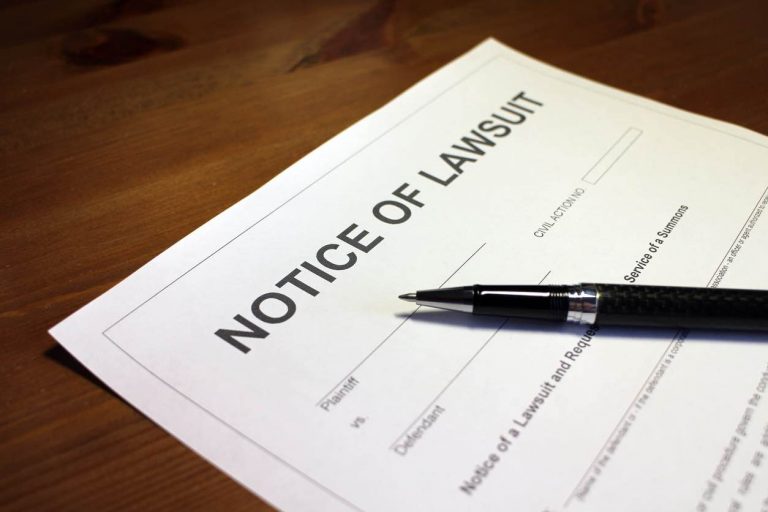Sarbanes-Oxley Whistleblower Claims Not Subject to Mandatory Arbitration
Sarbanes-Oxley retaliation claims are exempt from mandatory arbitration agreements. The whistleblower protection provision of SOX states: “No predispute arbitration agreement shall be valid or enforceable, if the agreement requires arbitration of a dispute arising under this section.”
A SOX Claim Should Not Be Stayed While Related Claims Are Arbitrated
A recent decision by Magistrate Judge Rutherford in Vuoncino v Forterra Inc et al., No. 3:21-cv-01046-K, 2022 WL 868274 (N.D. Texas Feb. 28, 2022) concludes that the statutory text of SOX and the great weight of authority compels a finding that a SOX claim should not be stayed while related claims are arbitrated:
At least two courts have found SOX’s express disapproval of predispute arbitration agreements grounds to allow SOX litigation to continue while a plaintiff’s related state-law claims were arbitrated. In Murray, the Southern District of New York refused to stay a plaintiff’s SOX claim while his related claims were going to arbitration, arguing: “It would be curious to allow an arbitration award to preclude remedies under a statutory scheme for which arbitration has been deemed inappropriate by Congress; it would be equally curious to stay litigation of such a statutory claim so that arbitration might proceed unimpeded on a different claim.” Id. Similarly, in Wusow v. Bruker Corp., the Western District of Wisconsin refused to stay a plaintiff’s SOX claim while his related claims were arbitrated. Wussow v. Bruker Corp., 2017 WL 2805016, at *8-9 (W.D. Wis. June 28, 2017). The court did this in spite of the fact that it was “likely, if not unavoidable” that concurrent litigation and arbitration may have resulted in “conflicting factual or legal determinations.” Id. at *8. Indeed, while noting that it would normally be efficient to stay the entire case pending arbitration, the court found that staying “the SOX claim pending arbitration … would effectively negate the anti-arbitration provision set forth in § 1514A(e)(2).” Id. Moreover, the court held that staying the SOX claim would result in “effectively denying plaintiff the right to a federal forum” guaranteed by Congress when it enacted SOX. Id. at *9.
*8 However, two other courts have exercised their discretion in the opposite way based mostly on the existence of overlapping facts. In Anderson v. Salesforce.com. Inc., the Northern District of California stayed a plaintiff’s SOX claim because it was based on “the same conduct” as his arbitrable state-law claims, “and because allowing the arbitration to resolve [would] simplify issues of law or questions of fact in future proceedings.” Anderson v. Salesforce.com, Inc., 2018 WL 6728015, at *3 (N.D. Cal. Dec. 21, 2018). Similarly, in Hansen v. Musk the District of Nevada stayed a plaintiff’s SOX claim because it arose “from the same conduct” as his arbitrable claims. Hansen v. Musk, 2020 WL 4004800, at *8 (D. Nev. July 15, 2020).Taken together, the Fifth Circuit precedent regarding nonsignatory stays, the nonbinding precedent favoring concurrent litigation of a SOX claim, and the nonbinding precedent favoring the stay of a SOX claim pending arbitration all point to two competing interests in cases like the one currently before the Court. Namely, the interest of a SOX plaintiff to have immediate access to a federal forum, as guaranteed in § 1514A(e)(2), and the interest of an arbitrating party in its “right to a meaningful arbitration,” as expressed by the Fifth Circuit and embodied in the FAA.In the context presented here, the Court finds Vuoncino’s interest in having a direct path to a federal forum for his SOX claim outweighs Defendants’ interest in enforcing its contractual right to arbitrate Vuoncino’s other claims. In crafting SOX, Congress included an explicit carve-out of predispute arbitration agreements. And in so doing, Congress evinced a clear “intention to preclude a waiver of judicial remedies for the statutory rights at issue.” Wussow, 2017 WL 2805016, at *8 (quoting Gilmer v. Interstate Johnson Lane Corp., 500 U.S. 20, 26 (1991)). If the Court were to stay Vuoncino’s SOX claim while the rest of his claims are arbitrated, it would essentially disregard that intention. While the Defendants’ contractual rights to arbitration may be somewhat diminished by the concurrent litigation, Defendants are at least assured that the arbitrable claims will proceed to arbitration. Defendants also may avail themselves of the opportunity to have the Court resolve legal issues related to the SOX claim. Indeed, Defendants have represented that they believe Vuoncino’s SOX claim fails as a matter of law and they intend to renew their motion to dismiss the SOX claim if the Court declines to stay it pending the arbitration of his other claims.Accordingly, the Court should exercise its discretion to allow Vuoncino’s claims to proceed concurrently, “each in its appropriate forum as determined by Congressional intent and the agreement of the parties.” Id. at *9; see also Landis v. N. Am. Co., 299 U.S. 248, 254 (1936)(“[T]he power to stay proceedings is incidental to the power inherent in every court to control the disposition of the causes on its docket with economy of time and effort for itself, for counsel, and for litigants.”); Qualls v. EOG Res., Inc., 2018 WL 2317718, at *2 (S.D. Tex. May 22, 2018) (“[A]lthough inherent power should not be abused, it is discretionary and largely unreviewable.” (internal quotation marks omitted) (quoting Coastal (Bermuda) Ltd. v. E.W. Saybolt & Co., 761 F.2d 198, 203n.6 (5th Cir. 1985))).
SOX Whistleblower Attorneys
Our firm’s SOX whistleblower attorneys have substantial experience obtaining relief for whistleblowers. If you are seeking representation in a Sarbanes-Oxley whistleblower case, click here, or call our SOX whistleblower lawyers at 202-262-8959 to schedule a free preliminary consultation.






SOX Whistleblower Lawyers’ Guide to SOX Whistleblower Law
Drawing on substantial experience representing corporate whistleblowers in SOX whistleblower cases, our SOX whistleblower lawyers have published a free guide to SOX titled Sarbanes-Oxley Whistleblower Protection: Robust Protection for Corporate Whistleblowers:
SOX Prohibited Retaliation Against Corporate Whistleblowers
SOX Whistleblower Protection for SEC Whistleblowers
SOX Whistleblower Lawyers
 Before hiring a SOX whistleblower retaliation lawyer to prosecute your whistleblower case, assess the lawyer’s prior experience representing whistleblowers, knowledge of whistleblower laws, and prior results. And consider the experience of other whistleblowers working with that attorney. See reviews from former clients by clicking here.
Before hiring a SOX whistleblower retaliation lawyer to prosecute your whistleblower case, assess the lawyer’s prior experience representing whistleblowers, knowledge of whistleblower laws, and prior results. And consider the experience of other whistleblowers working with that attorney. See reviews from former clients by clicking here.
The SOX whistleblower lawyers at Zuckerman Law have represented CEOs, CFOs, in-house counsel, partners at audit firms and other senior professionals in high-stakes whistleblower matters.
To learn more about whistleblower rewards or whistleblower protections, call the whistleblower retaliation lawyers at leading whistleblower firm Zuckerman Law for a free consultation at 202-262-8959, or click here.




